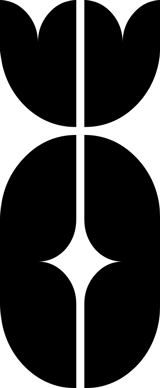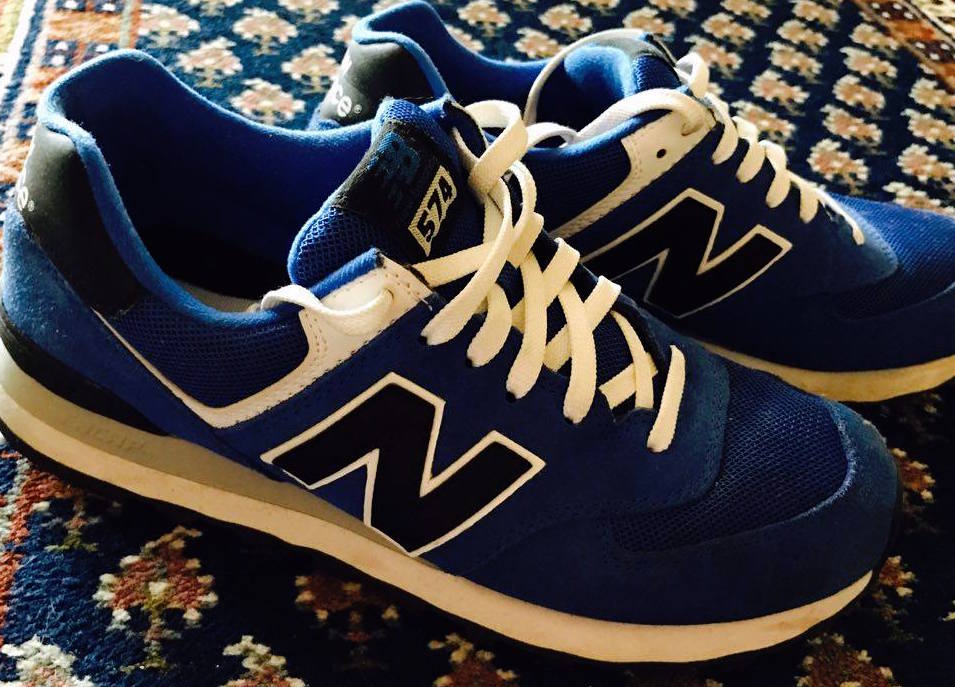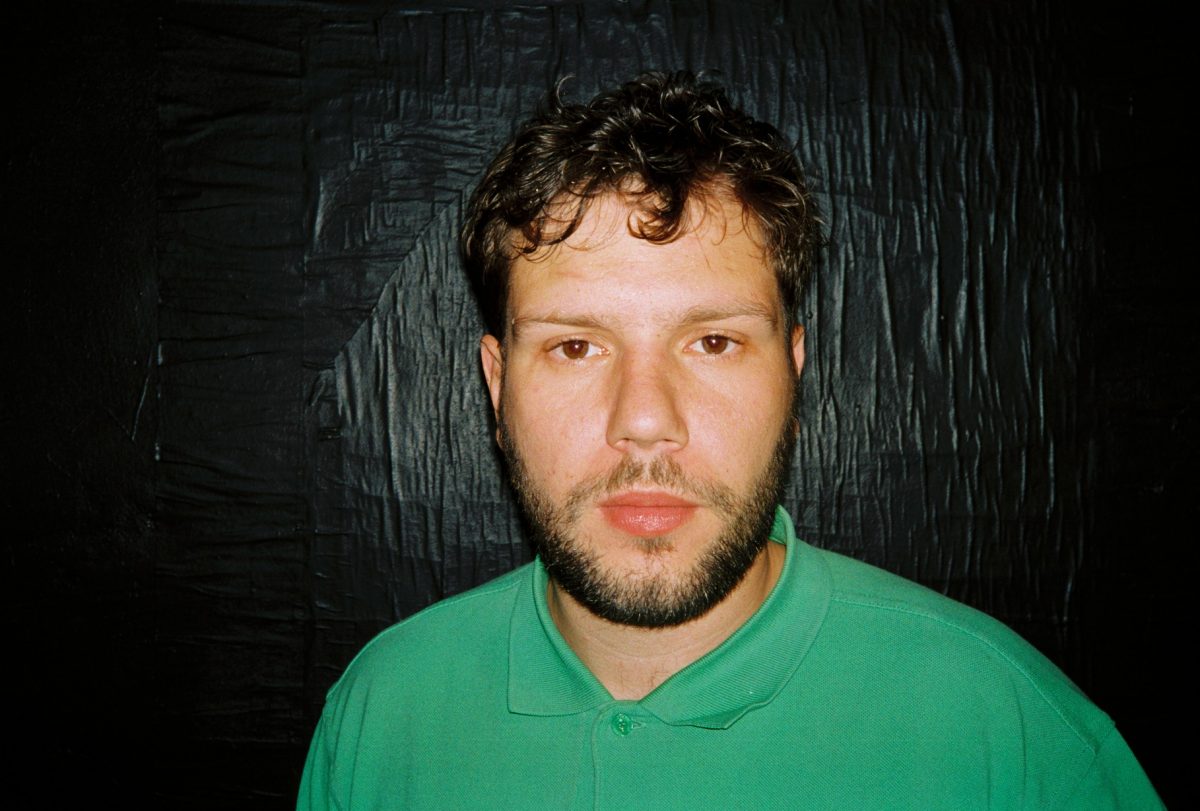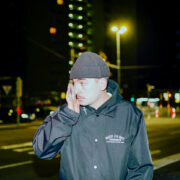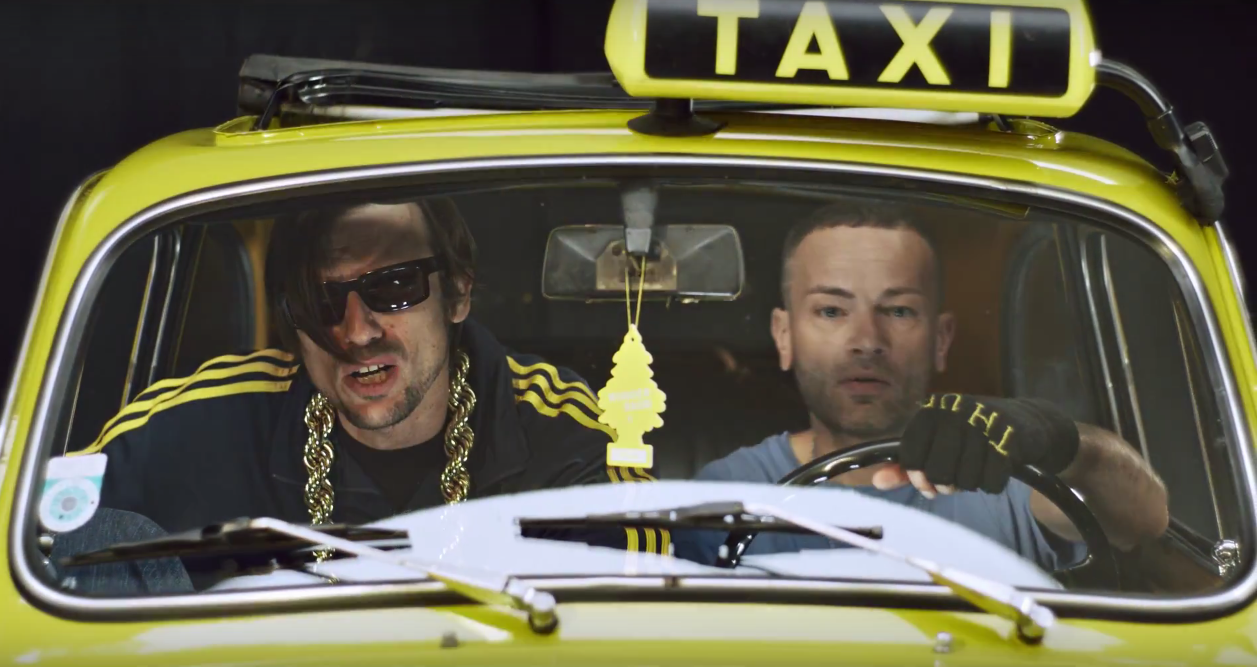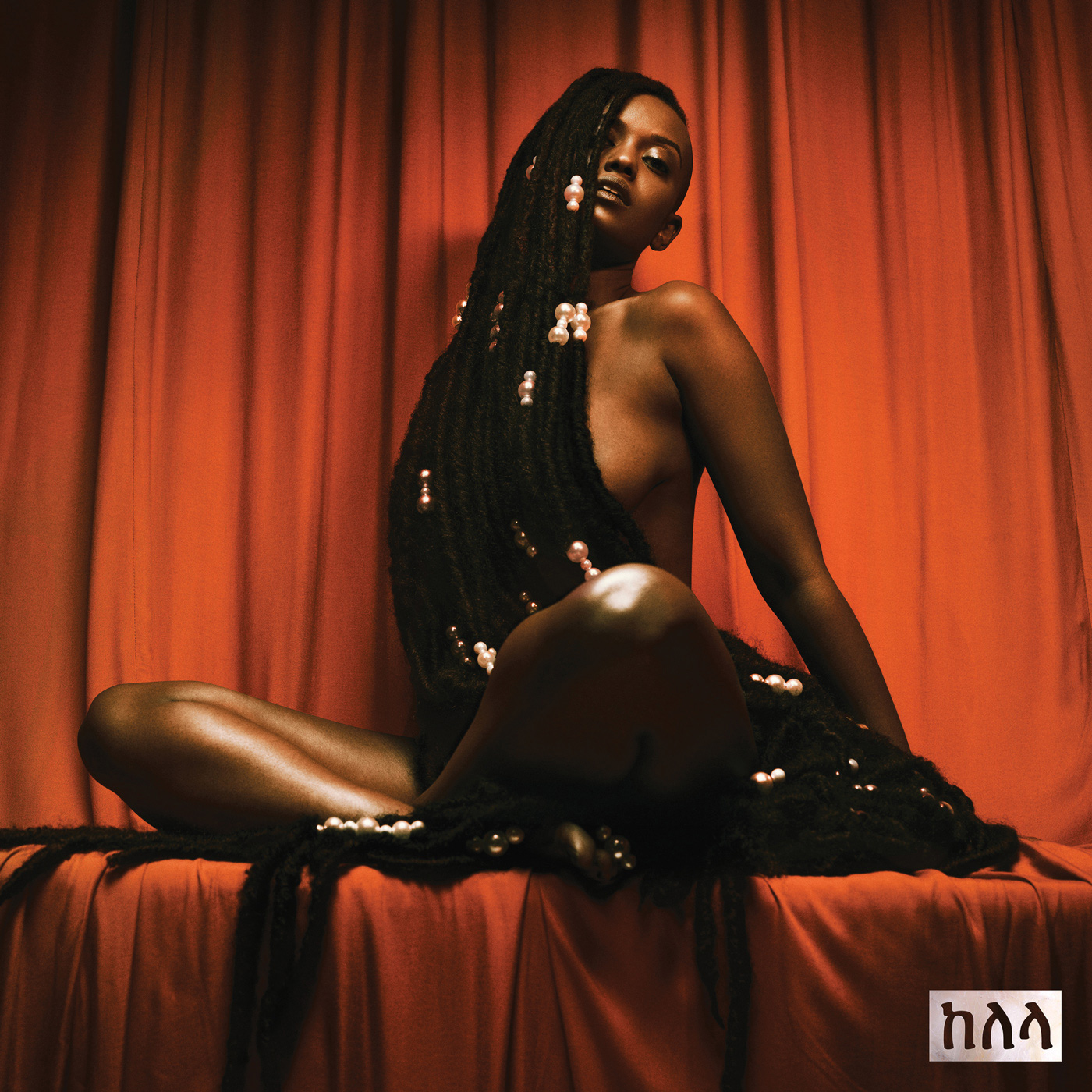"The hardest thing to do is something that is close…
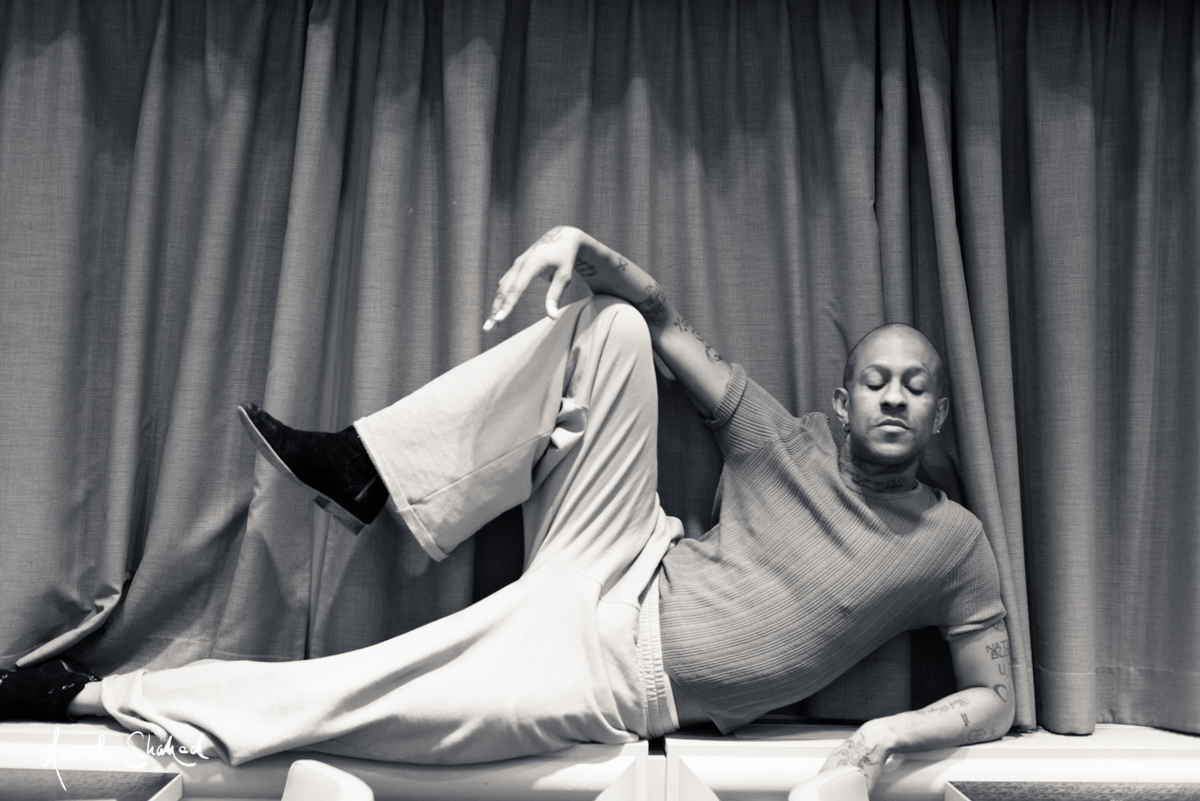
Mykki Blanco doesn’t consider himself a rap artist. To be honest, he never wanted to pursue a career in music. These things happened accidentally. Luckily. Who is unsure about this should listen to „Mykki“, his fantastic debut album which showed a passionate artist at the top of his art. „Mykki“ is not like his mixtapes before, which drew heavily on Punk and Noise influences. It has a much more artistic approach, due to his new collaborator Woodkid and a new kind of lyrics which aren’t just about hedonistic issues like drugs, sex, and parties (they play a considerable role in the album’s lyrics, though). But under this surface, Mykki Blanco has much more to tell …
The Message: It’s widely known that it wasn’t your plan to start a career in the music industry. Actually, coincidence played a major role in you becoming a rapper. How do you describe your personal circumstances before you started rapping?
Mykki Blanco: I started making music when I was 25. I was always a writer. I did visual art, performance art. Basically, 2011, I published a book of poetry. When I published the book, I was trying to do poetry readings in New York City. But I was trying to find a way to interact with people beyond just reading the poetry. I wanted to engage my audience more. My friend Jeff played bass and I asked him if he would play some music while I started to make the poems more musical. Slowly but surely, I ended up making the poems into songs. That project was called “No Fear”. Then, there was an Industrial-influenced music project where I played these loops and hard kind of noises and I started with poem-spoken-word-rapping. After that, I had the idea with the Mykki-Blanco-project. First, there was no music involved at all. It was strictly a video art project about a teenage girl who wanted to be a famous rapper. I ended up combining what I was doing with “No Fear” with this Mykki Blanco idea. Taking the poems and now doing some kind of rap monologue style. And then, the rap monologues ended up being actually raps. That was the first time I ever rapped. So, my way into HipHop-music started with the poems I wrote.
Did you read a lot of poems when you grew up?
I wouldn’t say I lot, but I loved poets like Sylvia Plath and Pablo Narudo. Narudo is one of my favorite poets. But nothing comes close to Rumi. I love Rumi! I really love the Persian poets. Actually, I’m in love with Rumi (laughs).
Which artists had the biggest impact on your personal style?
I used to be super inspired by Marilyn Manson, the performance artist Vaginal Davis, Bibbe Hansen, who’s Beck’s mother. I loved Jamiroquai, I loved Missy Elliott, I loved The B–52’s, Fiona Apple, Busta Rhymes, Eminem, so many different artists. What I really like about Eminem was his autobiographical style. His raps are like diary entrances. This kind of expressionism has a big influence on my art.
“My prayers are like affirmations”
You have a Star of David tattooed on your chest. How important is religion in your life?
I’m a very spiritual person. Religion is not so important for me, but spirituality. I pray multiple times a day. My prayers are like affirmations. I like the idea that you can have a dialog with God (laughs). That’s to the extent of everyday spirituality. I don’t necessary meditate – instead, I take contemplative walks. And I’m a big believer of the power that lies in certain things, especially crystals. I’m like a hippie sometimes.
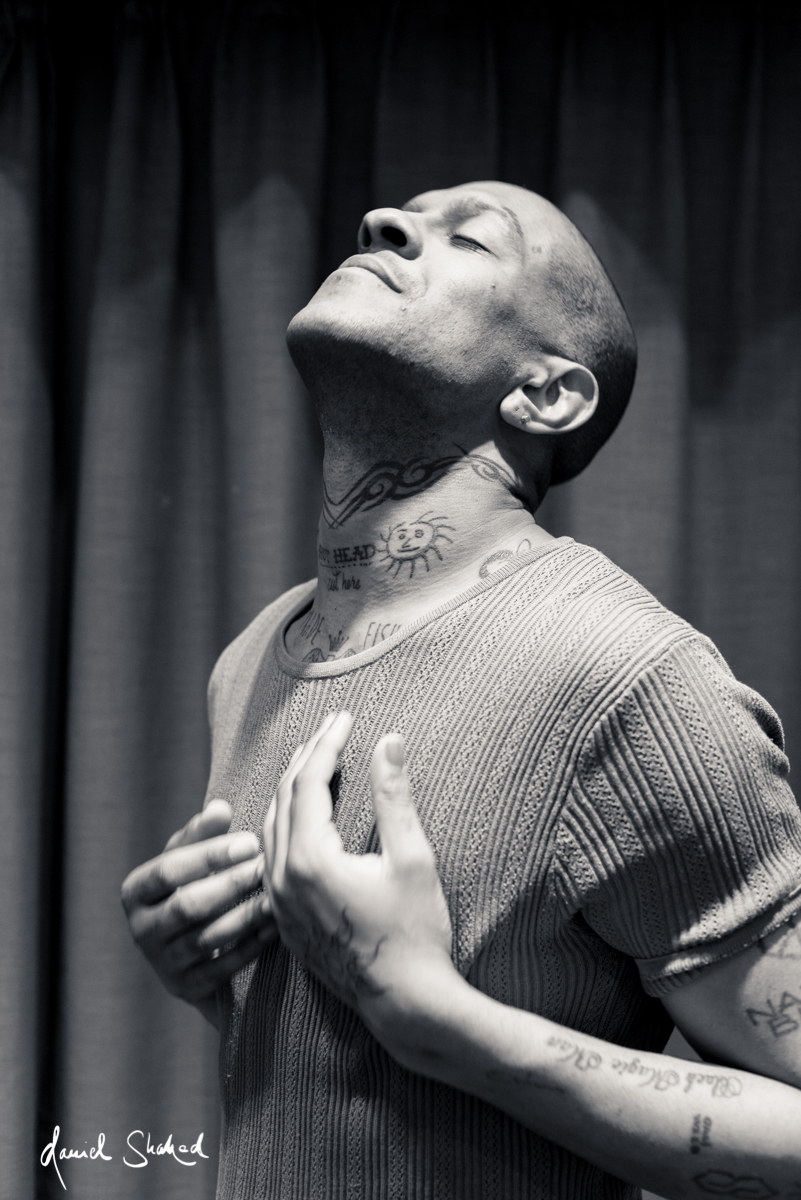 Do you need isolation? Being on your own?
Do you need isolation? Being on your own?
I’m somebody who is pretty silent. I don’t listen to a lot of music. I don’t watch a lot TV. If you hung out with me, you would be surprised how silent I am (laughs). I have friends who literally can’t do anything without their headphones. I’m not one of those people. Most of the entire day, I will be in silence. One of my favorite things is when I visit my family and they all go out for school or work, and I can enjoy the silence in the house. I gain a lot from silence, because there is a lot going on in my head. There are so many I things I just think about. I consider myself a laid-back person, but not an easy-going person. I’m very ambitious. And silence helps me to focus on my goals.
Most people consider isolation to be something negative.
I have always been blessed to have a lot of friends. I’m blessed that people like being around me. Because of that, I can really be without people for a while (laughs). I spent years of my life hanging out like … when I woke up, I took Acid and hung out with hundreds of people all day, all night. I spent so much energy on doing this. Also doing what I do now … there are some people who refuse to do interviews, for example. I accepted even if it’s annoying sometimes, kind like the framework of all of this is like push and pull. My personality is on display. You have to constantly express yourself. That’s like the double-edged kind of sword. I make a living by being an artist, so I have to talk about my personality. It’s funny because I think being egoistical is one the worst things you can be. It’s a horrible quality. Anytime you see it in someone, it’s so unattractive. And I like being attractive.
If an interview is a pleasure depends on the questions you get?
Sometimes, interviews can have a very positive effect. For example, when “Mykki Blanco & the Mutant Angels” came out, I was asked so many times about my creative process – questions that I have never thought of before. It made me think about things that I have never brought on the surface. Regarding the meaning of my songs and lyrics. And I’m a big flirt. I’m flirting with people all the time. Even in the interviews (laughs).
Do you feel like interviewers ask questions, just about things that are on their own agenda?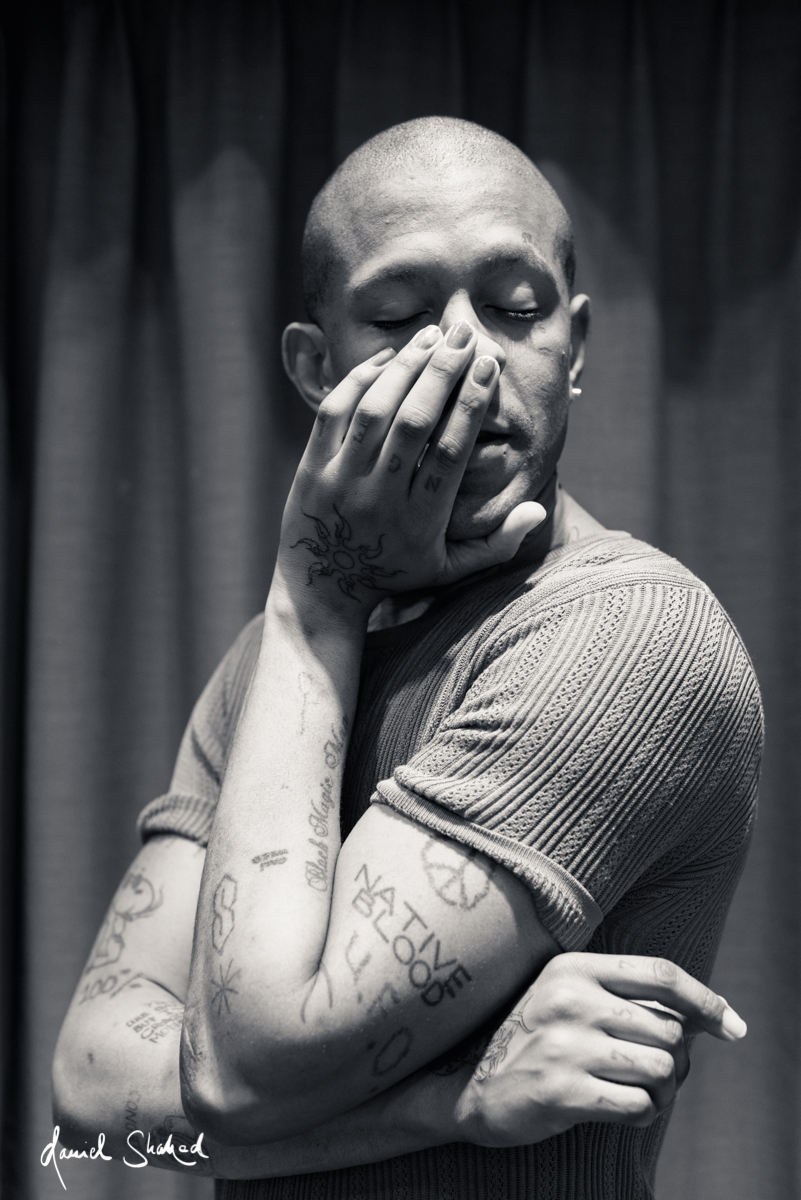
There was a woman one time in Germany, Berlin. And this was not an interview – she basically formulated kind of heavy, marked questions that were more like statements. Because I have done so many interviews – when someone presents to me a statement and covers it as a question, I immediately say “Sorry, that’s not a question. That’s a statement”. I don’t think that this is rude at all. Because I don’t know how I should reply to a statement I don’t agree with. I try to be polite, but in an honest way. I also did a radio interview earlier this day. And the guy there wasn’t even familiar with who I was. And he asked me questions about facts he looked up on the Wikipedia-page about me. And that offended me. The questions he asked me were so serious in a ten-minute span of time. I thought that this was some kind of joke and that things were going a bit awkwardly. I’m not a complete bitch. I didn’t want him to feel bad. And not answering the questions would have been very jovial. But afterwards, the co-host asked me how the interview was for me – and I answered that the questions had been heavy. It would have been different if he had been an investigative reporter, with fresh questions that were really engaging. But he asked me questions that I have answered in interviews over and over again. And he chose the most controversial ones and asked me in a ten-minute span. So I just told the co-host: “To be honest: that wasn’t fun”. And she got this really weird look on her face. I didn’t want bad blood and made that clear to her. But I had to tell her honestly that the interview wasn’t a pleasure.
“I might become more Jewish”
Regarding religion: you haven’t only got a tattoo of a Star of David, but also a cross on your skin. What was your motivation for choosing these religious symbols?
My father belongs to the oldest African American church that adheres to the tenets of Judaism. It’s not Sephardim, not Ashkenazi. A man called William Saunders Crowdy had a dream with the image of Christ coming to him saying: “Don’t follow these Baptists, these people teach the old ways”. He was a black man in the 19th century who taught Judaism to African Americans. Nowadays, the church is officially recognized as a monument, the oldest church. A lot of people don’t know about the sect of people, the “Church of God and Saints of Christ”. What’s actually sad is that the religion is dwindling. The younger people aren’t keeping up with the religion in the same way. But that is the religion I was born into. My mother is a metaphysical Christian. Nevertheless, I was raised celebrating Yom Kippur, Pessac. I was born Jewish, I was raised celebrating Jewish holidays. That’s a part of my identity. I might become more Jewish, we will see. I feel like I’m gonna end up as a Jewish guy. Some part of my soul thinks that.
Is the “Church of God and Saints of Christ” recognized by the official Jewish community in the US?
No, it’s not. I hate to make generalization, but a lot of Jewish people can act like racists, especially European jews. This has something to do with white supremacy. But I was raised in that culture – and no one can tell me something different.
Do the members of the “Church of God and Saints of Christ” have a special status in the African American community?
They are called the Black Hebrews. One thing sucks: In the 1970, a guy called Ben Ammi Ben-Israel started a Hebrew-Israelite cult that took the name of my dad’s church. They call themselves the „Black Hebrews“ and started to preach extreme stuff to the people. Before them, it wasn’t a problem to call oneself a Black Hebrew. Nowadays, there is always this connection to the cult people.
“People hate Israel. That’s what I learned”
Have you ever been to Israel?
I have, and I got blasted on social media. If I ever go back, I’ll never take photos because people were so outraged that I was there. Some people unfollowed me and called me a “Zionist”. It was really intense. I will go back to Israel, but I won’t post anything on social media. It’s too political. People hate Israel. That’s what I learned. The whole topic is a bomb. Next question, please (laughs).
You once considered becoming a journalist. What was your motivation?
It’s funny because I made that statement online. And it got blown out of proportion. I don’t know why so many people write about it. Anyways, there was a period in my life when I had come-out as HIV-positive, I thought about a back-up plan. It wasn’t so much that I wanted to become an investigative journalist. What I wanted to do was: I traveled so much and I have been able to see so many shades of queer – I have seen the gay culture in Slovenia, Bali, Russia, so many different places – I have seen so much about queer life around the world. What I wanted to do is start to chronicle or just shed light on these subcultures. And I still want to do that, maybe in my forties, fifties and sixties.
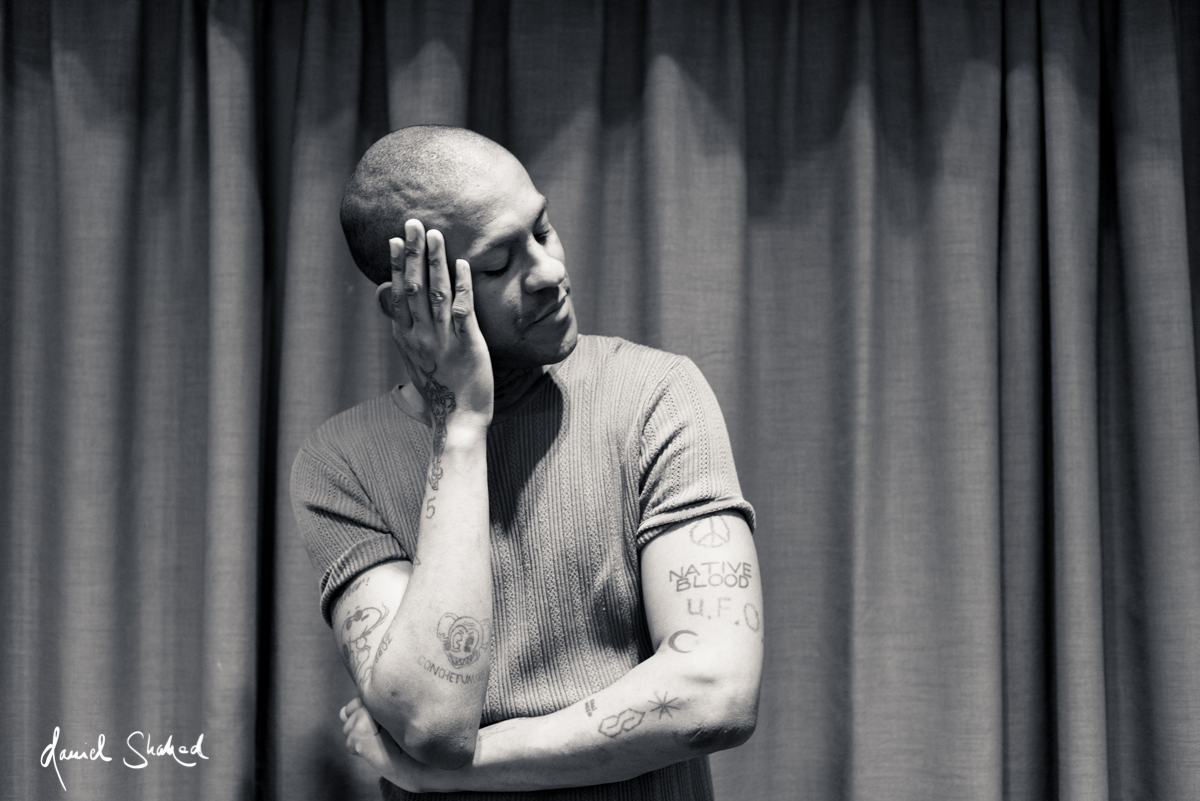
Mykki Blanco: Facebook | Twitter | Instagram
Ähnliche Posts
- The Story of a Long Lost Relative // DJ Werd Interview
DJ Werd ist seit Jahren eine Art "graue Eminenz" im deutschen HipHop-Geschehen. Aufgewachsen in San Jose,…
- "Srebrenica is the fault of the UN" // Edo Maajka Interview
There is something going on in South-Eastern Europe and who can tell us better about…
- "I wanted to be a Black Panther or a rapper" // Busdriver Interview
People call me 'Driver'", mit diesen Worten gesellte sich das Indie-Idol der Untergrund-Szene L.A.'s auf den…
